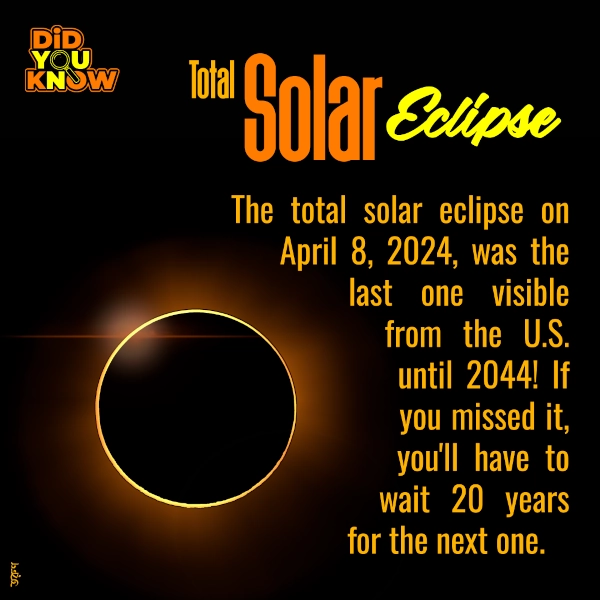
The Total Solar Eclipse of April 8, 2024
The total solar eclipse on April 8, 2024, was the last one to cross the contiguous U.S. until August 23, 2044. During this remarkable event, the Moon completely obscured the Sun for observers along the “path of totality,” which extended from Texas to Maine. Within this narrow path, people experienced a dramatic moment of darkness and saw the Sun’s corona—the ethereal, outermost layer—glow around the Moon. Across North America, viewers outside this path witnessed a partial eclipse, observing only part of the Sun being covered.
Why Total Eclipses Are So Rare
Total solar eclipses occur only when the Earth, Moon, and Sun align perfectly, casting the Moon’s shadow on the Earth. Such alignments are rare, and each eclipse casts a unique shadow, which limits where the total eclipse can be seen. In any one location, the opportunity to see totality is exceedingly rare. Although eclipses happen roughly every 18 months, only a specific area on Earth gets to witness each total event due to the narrowness of the path.
Looking Forward to 2044
The next total solar eclipse visible from the U.S. in 2044 will offer another extraordinary opportunity to witness totality across parts of North America. This future eclipse will pass over the northern U.S. and Canada, again offering a breathtaking experience to those within the path. Until then, a mix of partial and annular eclipses will be visible across North America, allowing enthusiasts to enjoy other types of celestial events.
Fun Facts
- The April 8, 2024, eclipse lasted for several minutes in some locations, a typical duration for total eclipses.
- Total solar eclipses follow the Saros cycle, reoccurring roughly every 18 years, 11 days, and 8 hours in different regions.
- Just before totality, some viewers saw “Baily’s beads,” spots of sunlight appearing through valleys on the Moon’s surface.
For more cosmic wonders and celestial phenomena, explore our “Space & Beyond” category and journey deeper into the mysteries of the universe!

We choose not to clutter your experience with ads. If you’d like to support us, consider showing some love by liking this post on X (Twitter) or on Instagram!
Share this Post, Spread the Knowledge!
